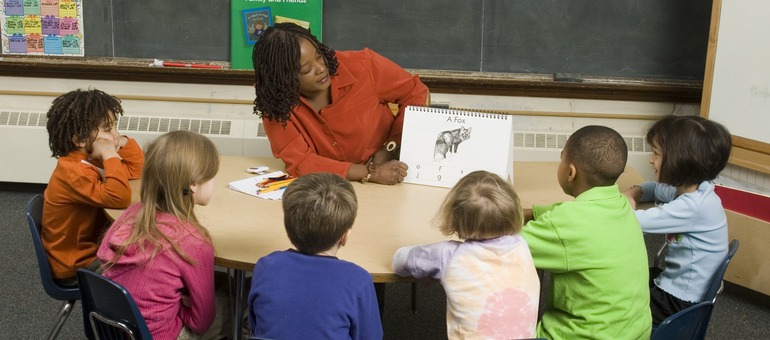Nothing can replace the learning that happens when students interact personally with a good teacher. Not even the most sophisticated computer can compete with that. However, the use of technology in connection with face-to-face learning can have huge benefits for both teachers and students. That's one reason why blended learning—a mix of online and classroom learning—is gaining popularity in schools around the world.
Read more Why is it fun to play games? Researchers have found that it’s the learning aspect of games that makes them fun. When we’re playing games, we’re making choices, realizing consequences, mastering skills, and working toward goals. We’re developing our understanding of systems and rules. Our brains are highly stimulated by this kind of learning, and we’re motivated to keep doing it. The best part is that our brains are working hard, yet we don’t feel drained by the effort—we’re just having fun!
Read more Did you know there is a downward spiral of reading failure? It starts with the foundational skills. Beginning readers who have difficulty learning to read words accurately and fluently may continue on a downward spiral, making it harder and harder to catch up.
Read more I've spent the past five years obsessed with the creation of Funēmics, and I've talked about it quite a bit with my family members, who collectively speak five languages and have lived in six different countries on four continents.
I grew up as an American in Saudi Arabia, and my family was part of a global community called ex-patriots—whatever that means. For us, it meant that when my sister Erica graduated from college, she moved to Florence, Italy; when my brother Patrick fell in love, it was with a Swedish girl in Rome; and when my Dad remarried, it was to a beautiful woman from Ecuador. More conventionally, I found a hockey player from northern Minnesota, but he happened to live in Aschaffenburg, Germany.
Read more Sight words are extremely challenging. Often they’re hard to conceptualize, and they don’t follow typical phonics patterns. But sight words come up again and again in the English language. It’s essential that students learn these high-frequency words as soon as possible in order to become successful readers.
Read more Imagine a tennis teacher holding the tip of your racquet to trace the arc of your swing. Imagine a dance teacher walking through the steps of a routine along with a class of students. Modeling is necessary for mastering just about any complex skill. When we work alongside someone who has mastered a skill, we’re in a much better position to master it ourselves.
Read more A Valuable Independent Word-Learning Strategy
As you know, vocabulary is a key component to success in reading. There are many benefits to having a large vocabulary, but none is more valuable than the positive contribution that vocabulary size makes to reading comprehension (Nagy, 2005).
So how many vocabulary words should you aim to teach your students per year?
Read more Why and when should Read Naturally students switch from one-minute to whole-story timings?
Read more Sharpening a new stack of pencils, decorating a clean bulletin board, organizing the books on the shelf… year after year, certain rituals mark the beginning of school. For Read Naturally teachers, certain rituals also mark the beginning of your program. We want to direct your attention to some previous blog posts—“oldies but goodies”—that contain valuable information about getting your Read Naturally program off to the best possible start.
Read more As you think about Read Naturally’s role in your school this coming fall, you’ll want to consider the most effective way for teachers and reading specialists to be trained in the strategy and materials. Read Naturally offers a variety of training options to accommodate any situation.
Read more 
 Share your student’s success story—nominate him or her for our Star of the Month award. Win a Barnes & Noble gift card for the student and a Read Naturally gift certificate for your class!
Share your student’s success story—nominate him or her for our Star of the Month award. Win a Barnes & Noble gift card for the student and a Read Naturally gift certificate for your class!